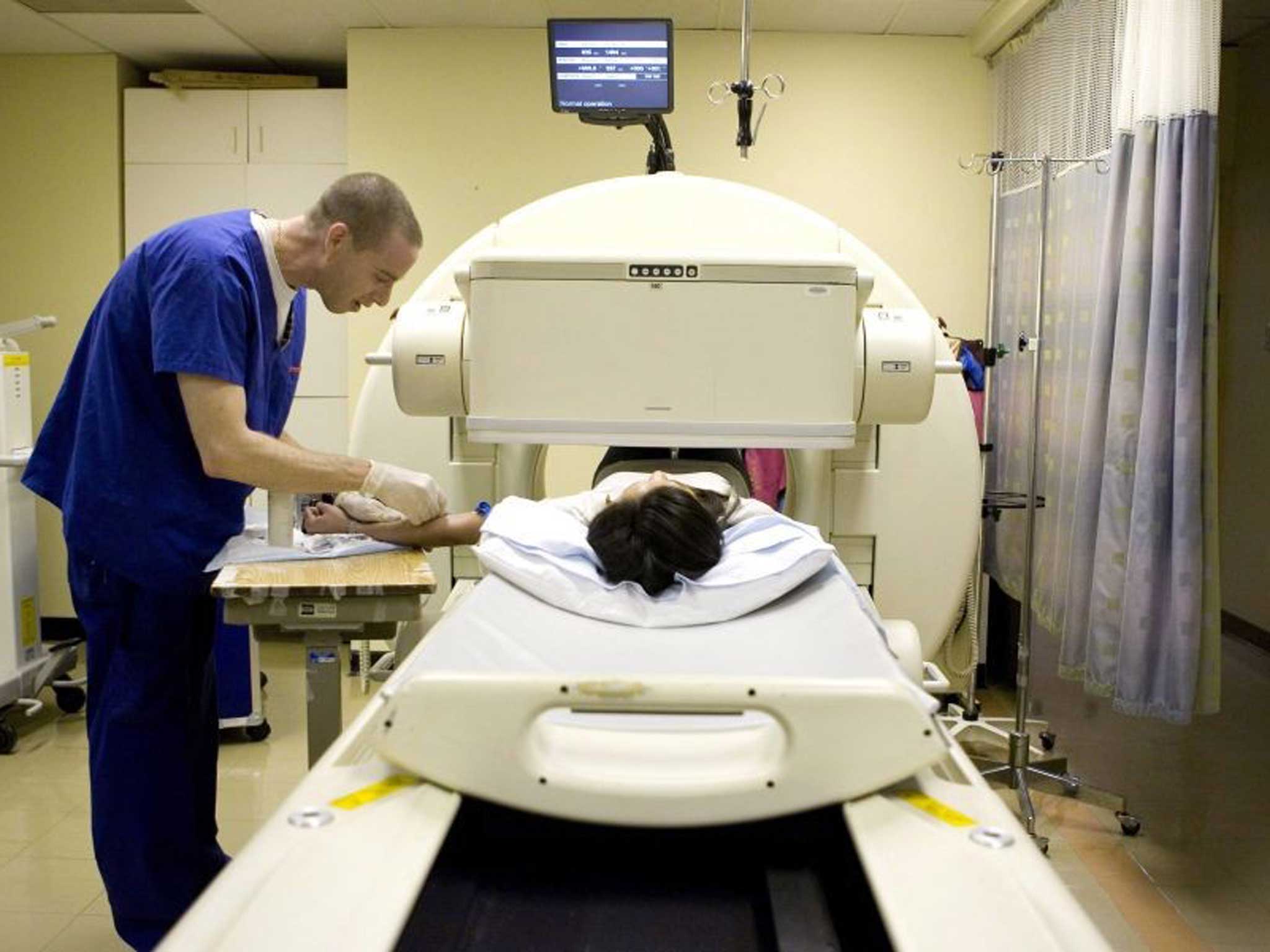Reactor closure puts medical scans at risk as shortage of radioactive material could jeopardise patients’ health
Doctors are searching for an alternative to key element used in diagnosis

A worldwide shortage of radioactive material vital for the operation of medical scanners could jeopardise patients’ health in the UK, say senior doctors. They are calling on the Government to prevent a shortage of a radioactive isotope used to diagnose cancers and heart defects.
Britain’s supply of molybdenum-99m is sourced from six nuclear facilities – in France, the Netherlands, Belgium South Africa, Australia and Canada. However, the situation reached a critical level when it was announced that the reactor which supplies 40 per cent of the world’s molybdenum will close in 2016.
Decades of service have made many nuclear reactors unreliable, and by 2016 when Canada’s Chalk River reactor halts its manufacture of molybdenum-99m, patients may be exposed to delays unless alternatives sources are found. Current vulnerabilities were highlighted this month after a leak at the South African Nuclear Energy Corporation plant and the unexpected temporary closure of the Mallinckrodt plant in Holland caused global shortages that are expected to be felt in hospitals in the coming weeks.
In 2007, a shortfall in the US saw around 50,000 appointments cancelled over a five-week period when the temporary closure of the Chalk River facility coincided with the shutdown of Dutch, Belgian, and French reactors.
Alan Perkins, professor of medical physics at Nottingham University, said that the UK’s reliance on imports from ageing nuclear reactors has “caused a huge amount of problems” and “caught a lot of [clinicians] out”. The shutdowns this month and the impending closure of Chalk River had made finding a solution to the problem critical.
Molybdenum is used to make the isotope technetium-99m which is currently used in 30 million diagnostic procedures across the globe each year, making it the most commonly used medical isotope.
“We’ve been aware of the problems for five years,” said Professor Brian Neilly, president of the British Nuclear Medicine Society. “There have been times in the past where we’ve had to reschedule patients. In times of shortage the community in the UK have shared the resource to lessen the impact,” he added.
Professor Erika Denton, national clinical director for diagnostics at NHS England, said she hoped British hospitals would find new techniques to reduce dependence on overseas supplies. She said the Department of Health and the British Nuclear Medicine Society were working on a report to be published early next year which explored “alternative imaging solutions” to those provided by reactor-produced isotopes. “We work with the main suppliers of medicinal isotopes to the UK and with healthcare providers to ensure any impact is minimal. Alternative tests or treatments are available in the majority of cases.”
Professor Neilly said: “We are producing a road map for the future and we have to see if government will follow or not. There’s a difference between flagging something up and whether or not a government will back or fund it.”
Join our commenting forum
Join thought-provoking conversations, follow other Independent readers and see their replies
Comments